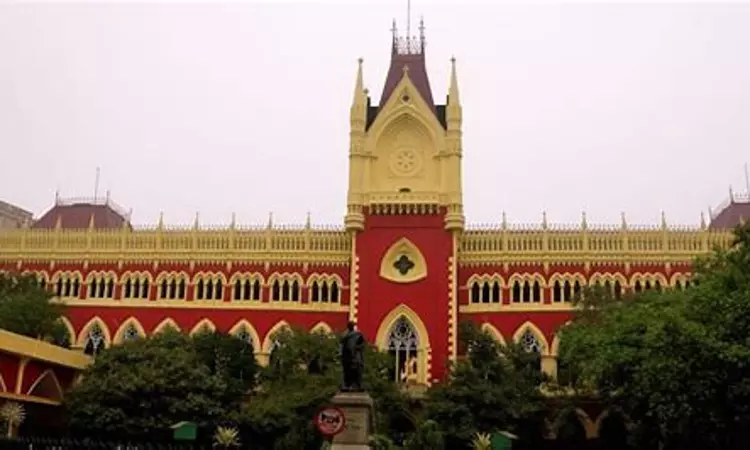- Home
- /
- High Courts
- /
- Calcutta High Court
- /
- Departmental Proceedings After...
Departmental Proceedings After Compulsory Retirement, Since Not Under Rule 9, CCS (Pension) Rules, Can't Continue : Calcutta HC
Pranav Kumar
25 May 2025 12:45 PM IST
Calcutta High Court: A division bench consisting of Justices Tapabrata Chakraborty and Reetobroto Kumar Mitra dismissed two cross appeals. Both appeals arose out of a single judge order that directed the release of retirement benefits to a former RPF officer. The court explained that proceedings initiated under Rule 153 of the Railway Protection Force (RPF) Rules, 1987, cannot continue...
Calcutta High Court: A division bench consisting of Justices Tapabrata Chakraborty and Reetobroto Kumar Mitra dismissed two cross appeals. Both appeals arose out of a single judge order that directed the release of retirement benefits to a former RPF officer. The court explained that proceedings initiated under Rule 153 of the Railway Protection Force (RPF) Rules, 1987, cannot continue after compulsory retirement. Further, the court also held that since the proceedings were not initiated under Rule 9 of the Central Civil Services (Pension) Rules, 1972 (“Pension Rules”), the pension benefits could not be withheld either.
Background
Rabindra Nath Das was stationed in Kanchrapara as a Sub Inspector in the RPF. In 2007, he was issued 3 chargesheets. Two for alleged misbehaviour with a superior, and gross negligence in preventing crime. The third chargesheet was for alleged negligence in maintaining General Diary entries. Das challenged these chargesheets, and also received a stay order from the High Court.
In 2011, Das was issued another chargesheet for unauthorised absence. That proceeding resulted in an order of removal, which the appellate authority modified to 'compulsory retirement'. Das accepted the order, and requested for his retirement benefits. However, in April 2016, the RPF stated that due to his three pending disciplinary cases, only provisional pension could be paid, and all other benefits would be withheld.
Aggrieved, Das filed another writ petition challenging the order. A single judge held that the pending proceedings had become infructuous and ordered the release of all retirement benefits. The Union of India filed an appeal against that order.
Arguments
The Union of India argued that the single judge was wrong in declaring the pending departmental proceedings as infructuous after compulsory retirement. They submitted that each proceeding was independent and that the employer had the right to impose separate punishments. They argued that the employer's powers under Rule 153 of the RPF Rules continue to operate even post-retirement. Rule 153 provides for disciplinary action against RPF members for various kinds of misconduct or negligence during service. Citing Union of India v. Om Prakash Yadav (Special Leave Petition (C.) No. 19519 of 2012), they argued that the employer could seek proceedings even after retirement.
Rabindra Nath Das argued that the pending disciplinary proceedings were initiated under Rule 153 of the RPF Rules and not under Rule 9 of the Pension Rules. He submitted that only Rule 9 allows the President to withhold or withdraw pension even after retirement. He argued that his retirement benefits could not be withheld under Rule 153. On the issue of interest, he argued that the employer was at fault for withholding the benefits without any justification. Citing Md. Farid v. Union of India, (WP.CT 154 of 2023), he argued that interest is a natural accretion to any delayed payment, especially when they are withheld without justification.
Court's Reasoning
The court noted that three charge sheets were issued in 2007 under Rule 153, RPF Rules. Rule 153 lays down the procedure for holding departmental inquiries for cases of alleged misconduct by RPF personnel, including framing charges, conducting hearings, etc. The court explained that these chargesheets were separate from the 2011 chargesheet, which led to Rabindra Nath Das's compulsory retirement. The court also noted that the interim stay orders were never vacated by the RPF authorities, and the employers never pursued the proceedings. Thus, the court held that the employer cannot blame the employee for pending proceedings without doing anything and also withhold benefits on that basis.
Further, the court noted that only Rule 9 of the Pension Rules allows the President to withhold or withdraw pension even after retirement, if the pensioner is proven guilty of any grave misconduct. However, the court held that the proceedings in this case were not for "grave misconduct" as defined in Rule 8(5)(b) of the Pension Rules. The court explained that 'grave misconduct' includes offences involving moral turpitude, pecuniary loss etc. The court explained that since there was no allegation of any pecuniary loss, and no recovery proceedings were initiated either, there was no 'grave misconduct' in this case.
Thus, the court dismissed the appeal. The court confirmed that departmental proceedings that are not initiated under Rule 9 of the 1972 Rules, cannot be grounds to withhold retirement benefits.
Date: 07-05-2025
Case No: MAT 739 of 2017
Counsel for Rabindra Nath Das: Mr. Achin Kumar Majumdar and Ms. Ananya Adhikary
Counsel for Union of India: Mr. Sanjit Kumar Ghosh and Mr. Raja Ghosh



